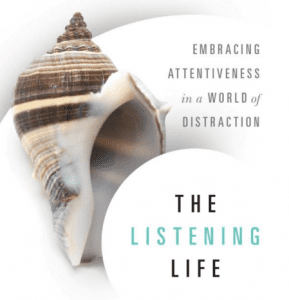Theology, Political Theory, and Pluralism: Beyond Tolerance and Difference (Cambridge Studies in Christian Doctrine)by Kristen Deede Johnson. Cambridge University Press, 2007; pb 2010. 276 pp. £21.99/$36.99. ISBN: 9780521154680.
~Reviewed by Wesley Vander Lugt, PhD Candidate at the University of St Andrews and editor of Transpositions, a blog exploring the interaction between theology, imagination, and the arts.
 Into the dizzying array of political theories and visions, Kristen Deede Johnson brings clarity of description and seeks to propose “an ethos of rich, hospitable and loving interaction” mediating the bifurcation between liberal tolerance and agonistic difference. Does she succeed? Before offering my own perspective, allow me to take you on a fast tour through the book.
Into the dizzying array of political theories and visions, Kristen Deede Johnson brings clarity of description and seeks to propose “an ethos of rich, hospitable and loving interaction” mediating the bifurcation between liberal tolerance and agonistic difference. Does she succeed? Before offering my own perspective, allow me to take you on a fast tour through the book.
To begin, in chapter two Johnson presents a broad summary of liberalism viewed through the work of John Rawls. The early Rawls formulated liberalism as a comprehensive doctrine resting on the principles of equal liberty and opportunity for every individual. Not surprisingly, this work prompted a flood of response from “communitarians” such as Alistair McIntyre who objected to privileging individual rights over the communal good. Partly in response to these critiques, Rawls later articulated a more thoroughly political liberalism, avoiding claims to any ontological foundation, a political theory that could seek consensus among communities shaped by comprehensive worldviews. According to Rawls, this consensus is made possible through the use of public reason and the duty of civility.
The major problem with Rawls’ theory, Johnson points out, is that this rational consensus assumes some “slippage” in the comprehensive worldviews of particular communities. It also assumes a distinction between public and private, and actually excludes those groups that refuse to acknowledge this separation, such as “Catholics, Protestants, hedonists, perfectionists, communists, socialists, feminists, and communitarians” (56-57). Real conversation about the good is impossible, because these groups are refused a place at the political table unless they are willing to seek consensus on a neutral playing field.
Given the problems with political liberalism, the backlash from post-Nietzschean political theory is to be expected. Johnson highlights scholars such as Chantall Mouffe who point out that differences are inevitable, that rational political consensus is not a possibility. William Connolly shares this perspective, but has provided more constructive solutions in light of inevitable political differences. He posits respecting differences through “critical responsiveness” and “agonistic respect,” which produces in a pluralism from the roots (rhizomatic), rather than a pluralism of different branches from a common stem (arboreal). Connolly is honest about his ontological presuppositions, namely, the abundance of being and the lack of fundamentals, except of course difference itself. But Johnson doubts whether Connolly provides an enduring solution, since his proposal does not reconcile unity and difference, abandoning the creative re-imagination of harmony in light of the need to get along in the public square. Is this all our political imagination can muster?
Not if we go back to Augustine, which is exactly what Johnson does in chapter 4. Augustine begins with a biblical vision of the world’s relational order, with disharmony and disorder resulting from the Fall. Disorder, therefore, does not reflect the way things are meant to be or should be, and reconciliation through Jesus provides a way to experience harmony and participation in the heavenly city. In the earthly city, power and pride reign over justice and humility. In fact, real justice is only possible through participation in the heavenly city, which has already been inaugurated through the work of Jesus but will not be complete until Jesus returns. Until then, we should neither expect to experience utopia in the earthly city nor should we abandon the earthly city.
Based on this Augustinian political imagination, how should Christians who are participants in the heavenly city participate in the earthly city? Johnson disagrees with how John Milbank answers that question: the heavenly city (the church) should increase its influence and slowly take over the role of the political sphere. Johnson agrees with Milbank that the church and state should not be separate, but she thinks that Milbank is not Augustinian enough in recognizing Jesus’ lordship over everything, and thus the importance for the church to simply be the church (agreeing with Hauerwas). She prefers the perspective of Karl Barth, who held a Christological connection between the political and the ecclesial, with Christ as Lord over both and the church at the center of the divine drama. Indeed, Johnson maintains that the political and ecclesial are both public sphere, and thus the church and the political realm are overlapping publics. Christians should be involved in the political realm because the limited goods of the earthly city are still worthy of pursuit, but we should recognize that our primary citizenship is the heavenly city. Christians should not expect to transform the political sphere, because this is impossible outside of reconciliation with Jesus.
The most important way for Christians to be involved, therefore, is through “rich, deep conversation,” and through a “hospitable ethos of interaction,” which includes embodied practices as much as honest conversations. Christians should not feel like they have to leave their deepest commitments at home and at church, but should interact freely and courageously in the public sphere. This needs to be done with humility, of course, because we interact as disciples “on the way,” not as those who have arrived at our final destination. The best political system is that which “accommodates conversation of communal religious practice,” and not political liberalism, which requires interaction on the basis of “public rationality” rather than on the basis of our deepest beliefs.
Overall, Theology, Political Theory, and Pluralism is a stunning summary of current political thought, accessible to readers at all levels. Johnson provides insightful critiques of major political thinkers and theories, leaving no doubt that Christian theology has a unique and important voice within this unsatisfying intellectual and political climate. Johnson crafts an alterative political vision that is both bold and humble, striving for the unified diversity that lies at the heart of the Christian political imagination.
I still have several questions after reading this book, however, some of which may point to weaknesses in Johnson’s method and argument. For one, even though Johnson interacts with a wide range of political theory, she did not widen her interaction to include other Christian political theorists, such as Abraham Kuyper and more recently James Skillen in the Dutch Reformed tradition. Second, at one point Johnson conflates the kingdom of God with the church, which seems problematic given her emphasis on Christ’s lordship over the whole universe. If anything, being more careful in distinguishing the kingdom and the church would have enabled Johnson to think more practically about specific Christian involvement in the political sphere. Third, based on the enduring connotation of ‘conversation’ with verbal acts, it would have been better for Johnson to advocate a “theology of public interaction” rather than “a theology of public conversation,” since she wants to emphasize concrete practices and embodied interaction. Fourth, at several points Johnson mentions that this public interaction requires humility and openness, even to the point of being willing to convert to another position. But do Christians (or anyone else for that matter) need to remain open to conversion in order to engage in authentic conversation? Finally, I found myself continually longing for practical examples of Johnson’s rich proposal, which was imaginatively compelling but less convincing because of its lack of illustrations and case studies. It may be that Johnson plans to supplement this volume with more a more practical volume in the future, and if this is case, I look forward to this additional work with great expectation.
In sum, this book stands alone as an impressive achievement in thinking Christianly about political theory, a notoriously confusing and contested area of study. As all works of high caliber, this book is hard to summarize and deserves careful digestion and consideration. If you pick up your own copy, which I highly recommend, I am convinced that you will glean much wisdom and that your engagement with this text will challenge your imagination and motivate you to adopt and promote a “hospitable ethos of interaction” in a world of difference.















